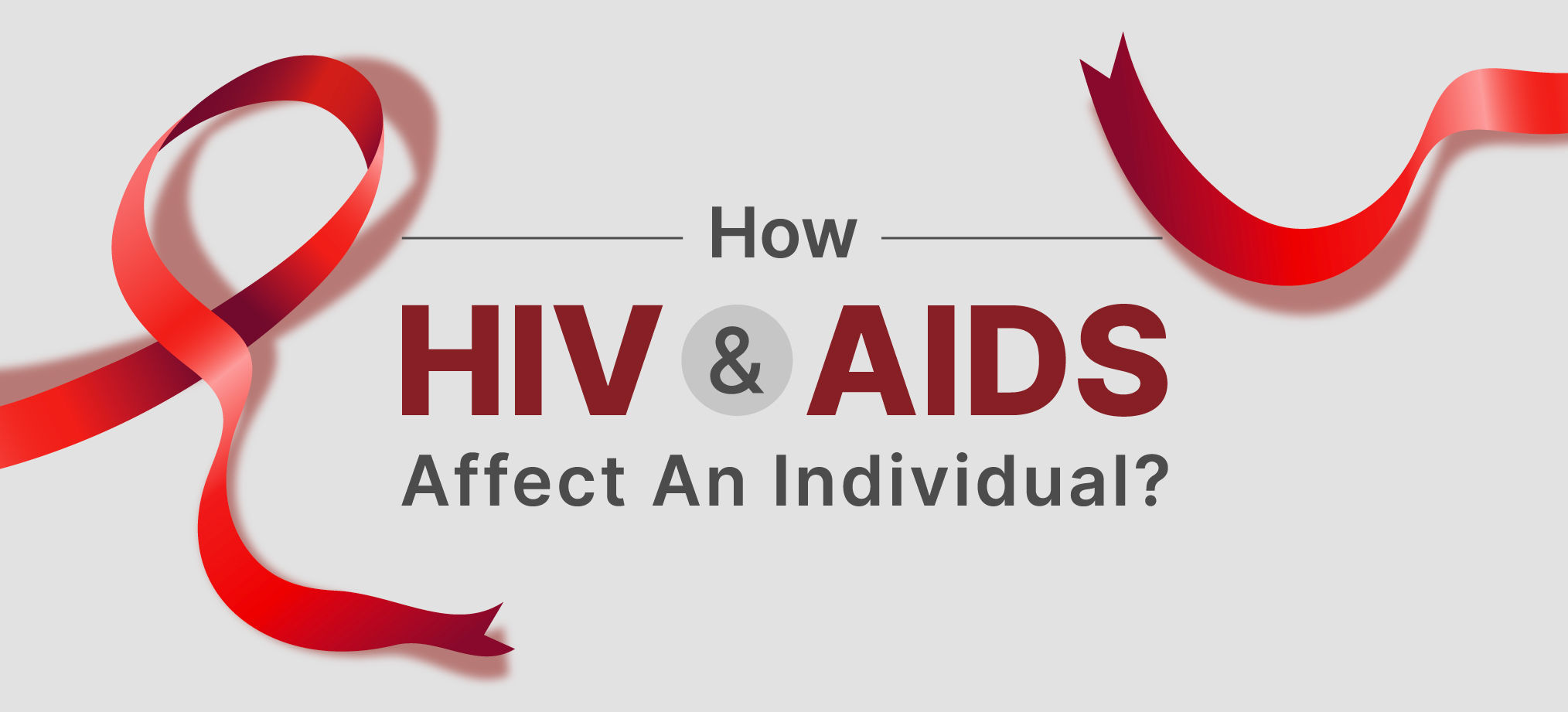General Health
Can A Person With AIDS Lead A Normal Life?
4 min read
By Apollo 24|7, Published on - 29 November 2022, Updated on - 07 August 2024
Share this article
0
0 like

There was once a time when getting AIDS was nothing less than a death sentence. However, the outlook for those living with AIDS has improved considerably over the last two decades. Finding out that you have been infected with HIV can be frightening and tough. But with the right treatment and support, those suffering from AIDS can now lead a healthy, normal life. Even the life expectancy of those living with AIDS has increased significantly with the progress in treatment modules. Read on to find out more about how living with AIDS is in today’s time. 
What are AIDS and HIV?
Human immunodeficiency virus (HIV) is a virus that attacks the immune system to make it weak and incapable of working as effectively. The human immune system is unable to fight and eliminate HIV from the body as it does with other viruses. HIV can progress and develop into acquired immunodeficiency syndrome (AIDS). Many people who contract HIV can live several years without developing AIDS with the help of proper treatment. However, if you have AIDS, it means you have HIV.
How do HIV and AIDS affect a person?
HIV kills the immune cells in the body, making it difficult for the body to fight off serious infections. These opportunistic infections can become fatal as they can cause serious damage to your immune system in its already weakened state. The development of these infections is a sign that your HIV infection has progressed into AIDS. Some of the opportunistic infections include:
- Recurring pneumonia
- Tuberculosis
- Salmonella infection
- Different lung infections
- Spinal cord and brain disease
- Chronic intestinal infection
- Fungal infections
- Herpes simplex virus
- Cytomegalovirus infection
Such opportunistic infections, particularly tuberculosis, are a major cause of death for those living with AIDS. The most effective way of preventing the development of opportunistic infections is by strictly sticking to treatment and getting regular check-ups.
How has the Treatment for HIV-positive People Improved?
Since the time of the HIV epidemic, the treatment for HIV-positive people has evolved significantly. The highly effective anti-retroviral medications are quite helpful in slowing down the damage wreaked by an HIV infection. For those diagnosed with HIV infections, doctors advise antiretroviral therapy, which includes taking a daily dose of three or more antiretroviral medicines. This combination of medications helps in suppressing the viral load, which is the amount of HIV in your body. Viral-load suppression helps in reducing HIV transmission and enables people with HIV to lead healthy lives.
Life Expectancy for People with HIV
Many studies show that the life expectancy of an HIV-positive person is similar to that of an HIV-negative person, provided they are diagnosed on time, have easy access to proper medical care, and strictly adhere to HIV treatment. According to the study, the total life expectancy of a 20-year-old HIV-positive individual in 1996 was 39 years. This number had bumped up to nearly 70 years by 2011.
Furthermore, the survival rate for those living with HIV has also improved significantly. For instance, research involving Swiss people living with HIV found that between 1988 and 1995, 78% of the deaths were due to AIDS-related illnesses. This number dropped to 15% between 2005 and 2009.
Long-term Outlook for HIV-positive People
Even though the life expectancy of HIV-positive and HIV-negative people have now become similar, studies suggest that those living with HIV may spend fewer years of their life in good health. People suffering from HIV infections show higher rates of illnesses usually associated with ageing like diabetes, heart disease, kidney disease, and osteoporosis. For this reason, it’s vital for people with HIV to make regular visits to the doctor and seek medical help for any conditions as soon as they arise. Beginning and sticking with antiretroviral treatment immediately after the diagnosis is essential for preventing complications and staying healthy. Some of the other things you can do to keep your immune system working effectively are:
- Take a healthy diet
- Get regular exercise
- Avoid smoking at all costs
All in all, HIV screening is essential. Only with timely detection and treatment can you manage the virus, increase life expectancy, and reduce transmission risk. Those who don’t get the proper treatment on time are more likely to suffer complications that could result in serious illness and even death. For more information,
Medically reviewed by Dr Sonia Bhatt.
General Health
Consult Top Infectious Disease specialists
View AllLeave Comment
Recommended for you
.jpg?tr=q-80)
General Health
What Does The CBC Test Mean?
A Complete Blood Count is a blood test used to diagnose various diseases. A CBC test report provides details of levels and characteristics of different blood cells, to help diagnose conditions like anaemia, infections, and blood cancers. Read on to learn more about CBC test uses and its procedure.

General Health
Food Allergy Vs Food Intolerance: What is the Difference?
There is difference between food allergy and food intolerance. Either of these conditions can cause headache, bloating, rashes, and stomach ache. Consult our doctors to learn about food intolerance vs food allergy.
.jpg?tr=q-80)
General Health
What Level of Alkaline Phosphatase is Dangerous: Understanding the Risks of Abnormal Levels
Learn what high or low alkaline phosphatase levels mean for your health. Discover the risks, causes, and when to seek medical attention for abnormal levels.
Subscribe
Sign up for our free Health Library Daily Newsletter
Get doctor-approved health tips, news, and more.
Visual Stories

The Best Exercises for Controlling Blood Sugar Levels
Tap to continue exploring
Recommended for you
.jpg?tr=q-80)
General Health
What Does The CBC Test Mean?
A Complete Blood Count is a blood test used to diagnose various diseases. A CBC test report provides details of levels and characteristics of different blood cells, to help diagnose conditions like anaemia, infections, and blood cancers. Read on to learn more about CBC test uses and its procedure.

General Health
Food Allergy Vs Food Intolerance: What is the Difference?
There is difference between food allergy and food intolerance. Either of these conditions can cause headache, bloating, rashes, and stomach ache. Consult our doctors to learn about food intolerance vs food allergy.
.jpg?tr=q-80)
General Health
What Level of Alkaline Phosphatase is Dangerous: Understanding the Risks of Abnormal Levels
Learn what high or low alkaline phosphatase levels mean for your health. Discover the risks, causes, and when to seek medical attention for abnormal levels.



